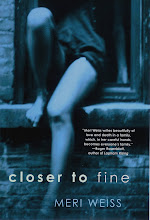“Seeing comes before words. The child looks and recognizes before it can speak. But there is another sense in which seeing comes before words. It is seeing which establishes our place in the surrounding world; we explain that world with words, but words can never undo the fact that we are surrounded by it. The relation between what we see and what we know is never settled. [. . .]. The way we see things is affected by what we know or what we believe. [ . . .]. We only see what we look at. To look is an act of choice. [ . . .]. We never look at just one thing; we are always looking at the relation between things and ourselves. Our vision is continually active, continually moving, continually holding things in a circle around itself, constituting what is present to us as we are.”
- John Berger, Ways of Seeing
John Berger’s Ways of Seeing is a very cool and interesting book I had to read in college and have since re-read several times. I consider it philosophy, though I think it falls under the category of media studies. I have been thinking about it a lot lately. About a month ago, my bestest pal Steven won 2 tickets to see Madonna at Roseland Ballroom. Roseland Ballroom is, literally, an old ballroom; its standing room audience capacity for a concert is only 3,200 people. The only other person who loves Madonna as much as I do is Steven. Love is really the wrong word; revere, appreciate and adore are more appropriate words. Steven and I both entered a Verizon Wireless contest, and out of 35,000 people, Steven was one of 15 winners!
He invited me. For a week I referred to him only as my hero.
On Wednesday, April 30, 2008, I was within 25 feet of Madonna. She sang for about 36 minutes. The concert was amazing—her new songs are terrific, she looks fantastic and the energy in the room was electric. I couldn’t see much, because there weren’t any of those huge screens we’re used to from stadium concerts, but at the time it didn’t matter—it was me, Steven, Madonna and only 3,197 other people rocking out! I was breathless for the rest of the week.
After the adrenaline high wore off, I started to ponder something I had observed but not processed during the concert. Although I’m kind of short (OK, totally short, I admit), it wasn’t just my lack of height that prevented a view of Madonna on stage. Nor was it a plethora of tall people in front of me. The reason I could not see Madonna (or Justin Timberlake, or her dancers) very well was because there were hundreds of cameras, attached to hundreds of arms, in front of me. Even after the first song, people continued to hold cameras in the air, shooting picture after picture of Madonna.
I am still thinking about these cameras, and not just because they blocked my view. If all those people were watching the concert through their cameras, did they truly experience the concert? Did they feel the heat in the room increase when Madonna took the stage? Did their bodies register the thunderous, floor-quivering applause when Timberlake made his surprise appearance? Did they dance? Clap? Scream?
At least once a week I encounter tourists in New York City viewing our sights through digital eyes of cameras or camcorders, and it bothers me. First, because they seem to pick the worst spots to stop and snap photos, like the entrance to the subway, or on a busy street corner, or directly in front of the building I am trying to enter. Mostly, though, it bothers me because these tourists don’t stop to stare at a landmark, they merely take pictures or shoot video of it. I have to wonder: are the tourists, and the Madonna fans, forsaking a visceral memory for a great photo? If people do not really see—literally see, with their own eyes—are images ingrained in their memory? Or will they only remember the image as they saw it, and continue to see it once they have returned home, through a camera?
I do not think cameras are bad; in fact, cameras allow us to share magical moments as well as mundane monuments with our loved ones. They also encourage us to study details we may have missed in person. But when the camera eye begins to replace the human eye, I worry. Memory can be extraordinarily strong, but it is a muscle, and like all muscles, it must be utilized to stay strong.
It wasn’t until the Madonna concert that I fully developed these thoughts; however, for the past several years, without knowing exactly why, I have not taken pictures of stunning sunsets, riveting rainbows, fascinating fireworks, or mind-blowing music concerts. Instead, I stand very quietly and let the images wash over me, into my memory. I open my mind and try to encapsulate the moments that very often leave me speechless. I look. I observe. And then I see.
I would rather remember these moments of beauty and perfection myself, without the aid of photos. And if the memory fades, well then, it was meant to be.





2 comments:
This is beautiful, lucid writing that makes an astonishing and timely point.
Maybe our lack of descriptive powers is to blame; many of us take pictures so we can show others what we saw.
-RRK
Great post, babycakes.
- your "hero"
Post a Comment